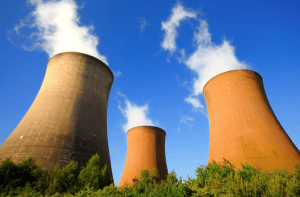[ad_1]

The move is to ensure the use of Ghanaian local expertise, goods and services, people, businesses, and financing in the nuclear power programme.
Dr Stephen Yamoah, the Executive Director, Nuclear Power Ghana (NPG), said this at a media engagement in Accra organised by the Nuclear Regulatory Authority (NRA).
It was under the theme: “The Role of the Nuclear Regulatory Authority in Ghana’s Nuclear Power Programme”.
The engagement was also used to award four journalists, who emerged winners in the NRA Media Awards.
They are: Mr Albert Oppong-Ansah, an Editor at the Ghana News Agency (Best Online Report), Ms Joyce Gyekye, an Editor at the Ghana Broadcasting Corporation (Best Radio Reporter/ Overall Best), Ms Juliet Sarfo, Journalist, at Daily Graphic (Best Print Reporter) and Mr Samuel Kojo Brace, a Journalist at Multimedia (Best Broadcast Reporter).
Dr Yamoah said NPG, the owner and operator of the Plant, continued to engage stakeholders, including the Association of Ghana Industries to discuss standards and capacities needed to harness opportunities in the sector.
“Our local industries have an important role to play and they need to brace themselves for the task ahead. For instance, at the construction stage, there are opportunities for carpenters, electricians, iron workers, insulators, masons, laboures and painters,” he said.
“However, if we push for local content and we get it and we are unable to deliver, it will be risky and costly to us. The dome of the nuclear Plant has a steel component. When this is awarded to a local vendor, a good job is expected, not a poor job where the vendor will use scrap metals as raw materials.”
The NPG, he stated, was also engaging with tertiary technical and vocational institutions to train students on the required capacities.
Dr Yamoah said the nuclear power programme was expected to “take shape” with the selection of a partner and technology by the end of the year 2023.
Dr. Archibold Buah-Kwofi, Deputy Director of Nuclear Power Institute of the Ghana Atomic Energy (NPI-GAEC), said the success and sustainability of Ghana’s nuclear Plant required sustained human resource flow for the entire life-cycle of the Plant.
“Education and training, therefore, become key to achieving this skill development. The project success partly hinged on having sufficient numbers of qualified technicians,” he said.
Dr Buah-Kwofi said highly qualified, well-trained technicians were needed to ensure safe and reliable nuclear power plants during construction and operation.
Dr. Nii Kwashie Allotey, the Director-General of the Nuclear Regulatory Authority, said the Authority was committed to ensuring that safety, security, and safeguards were prioritised as the country prepared to build a nuclear power Plant.
“The role of the Nuclear Regulatory Authority is to ensure that everything being done in the three critical areas of safety, security, and safeguards is done safely. We protect humans and the environment against radiation so, we make sure that everything is done safely,” he said.
Dr Allotey said the NRA was building the capacity of its staff and forming cooperations with other international bodies to benefit from their expertise.
Source: GNA
[ad_2]
Source link
